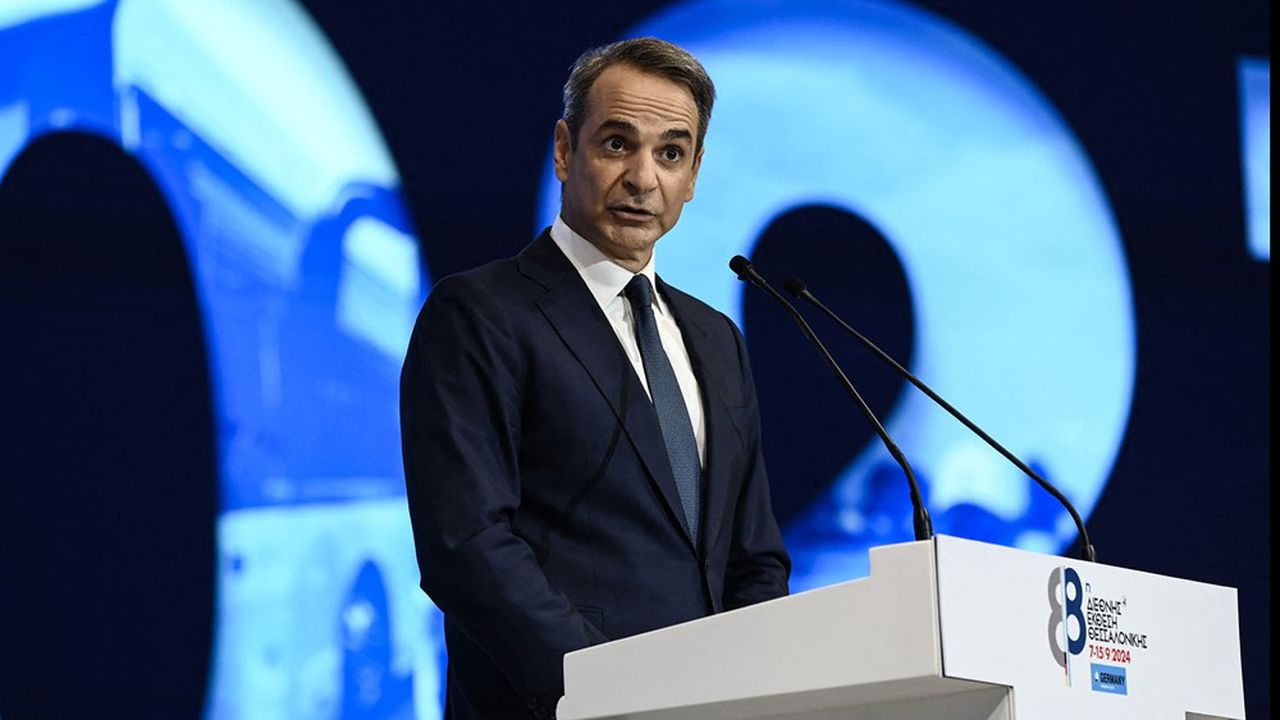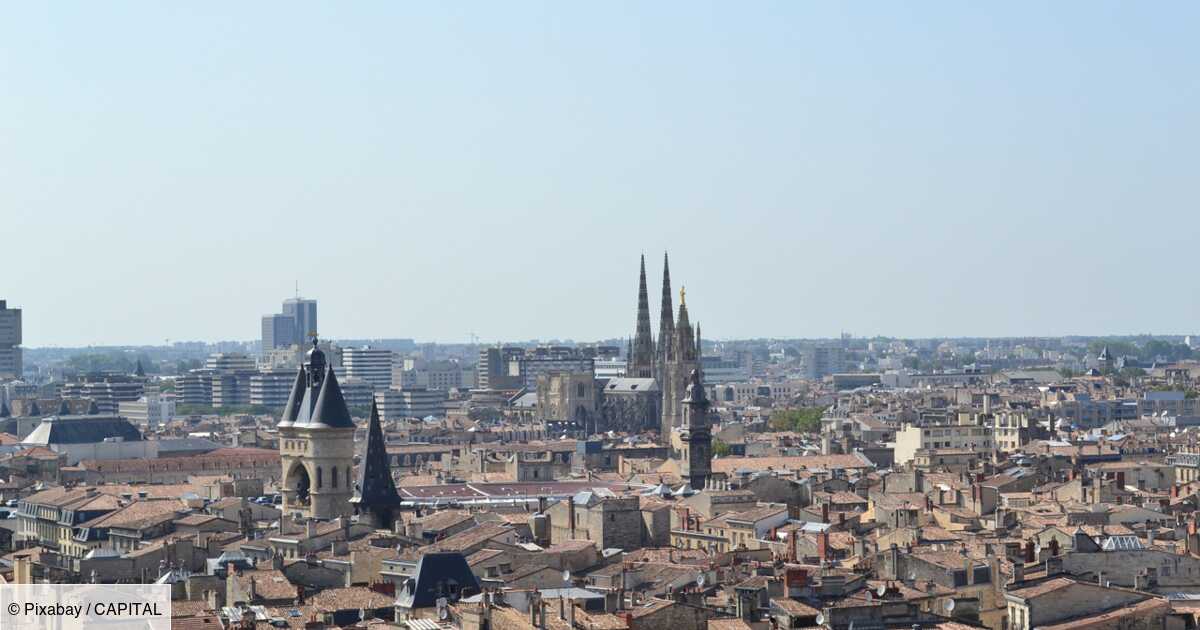
It’s becoming a habit. On Saturday, September 7, the entire center of Thessaloniki, Greece’s second city, was locked down by a large security presence for the arrival of Prime Minister Kyriakos Mitsotakis. As with each of his recent public appearances, the leader’s visit was disrupted, this time by a massive social movement called by unions, collectives and opposition political groups.
Came to give his back-to-school speech for the opening of the 88e Thessaloniki International Fair – a tradition in Greece – Kyriakos Mitsotakis faces anger and weariness in his sixth year in power. The Greek economy has been performing well (growth was 2.3% in the second quarter) but many of his fellow citizens still see no improvement.
At the back of the EU pack
Faced with soaring rent and food prices, many Greeks have seen their purchasing power stagnate or even decline despite the economic rebound and the increase in working hours – they hold the record for the number of hours worked in the EU and the government introduced the possibility of a six-day week under certain conditions in July.
According to Eurostat, in 2023 Greece had a GDP per capita expressed in purchasing power standards equivalent to 67% of the European average, i.e. 26e out of 27 member states – only Bulgaria does worse.
And while some sectors (tourism, construction, IT) have seen wage growth, the rest are struggling to keep up. According to the Ministry of Labor, only 10% of private sector employees earn a monthly net salary of more than 1,450 euros.
45 measure range
The cost of living has thus become one of the major concerns, to the point that the media debate in recent days has focused on the question of whether or not the Greeks have become the poorest citizens of the European Union after the Bulgarians.
Kyriakos Mitsotakis, for his part, is suffering from the situation: having been badly beaten in the polls, his party only won 28% of the vote in the European elections, far from the 41% for his re-election in 2023. “For growth to be significant, it must translate into even more and better-paid jobs, an increase in disposable income and a reduction in inequalities,” he said in Thessaloniki on Friday.
On Saturday, the leader unveiled a wide range of 45 measures, including tax exemptions (for the self-employed and farmers), increases for a number of public workers (doctors, firefighters, police officers, military personnel) or the increase of family allowances and the guaranteed minimum income. He also reiterated his promise to reach an average salary of 1,500 euros net by the end of his mandate, in 2027. Which no economist considers credible today.
“Crumbs of promises”
For Nikos Vettas, who heads the think tank IOBE (the Greek Foundation for Economic and Industrial Research), the most significant measures concern the reduction of social security contributions by 1% and the launch of a 2 billion program to help young couples acquire their first property. But, with the return this year of European budgetary rules, “Greece has limited room for maneuver and we are very far from a large fiscal package,” believes the economist.
In keeping with budgetary discipline, the government is also planning a primary budget surplus – before payment of the debt burden – of 2.1% in 2024, and Kyriakos Mitsotakis had warned that he was not arriving in Thessaloniki “with a bag of reckless spending”. These measures are “only crumbs of promises that will dissipate with inflation”, reacted Dimitris Koutsoubas, the general secretary of the KKE (communist party), present at the demonstrations in Thessaloniki.







